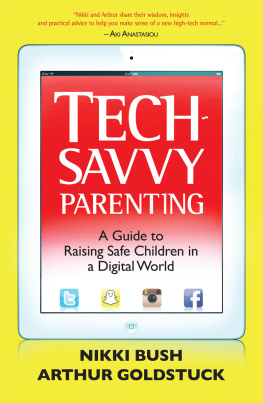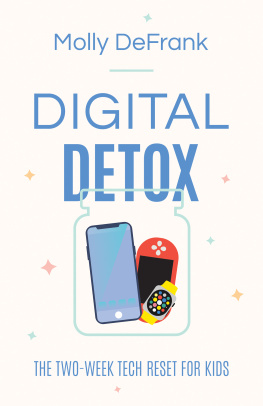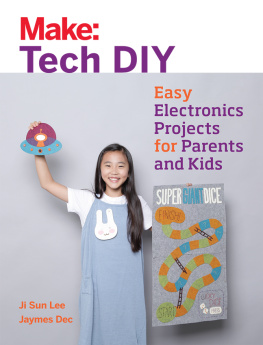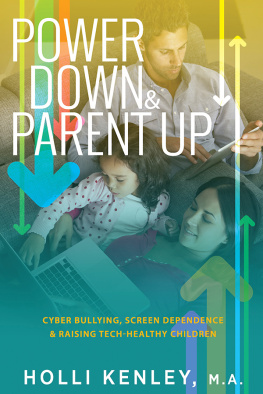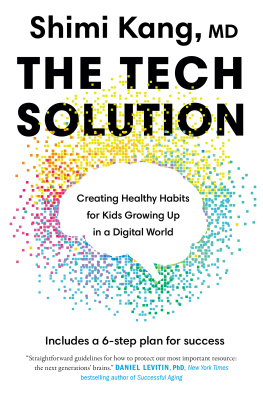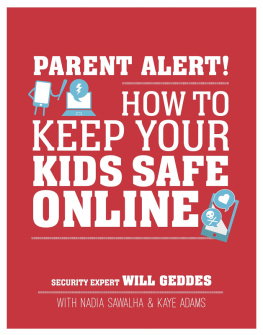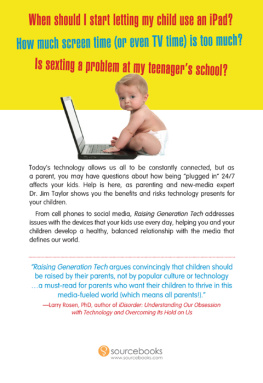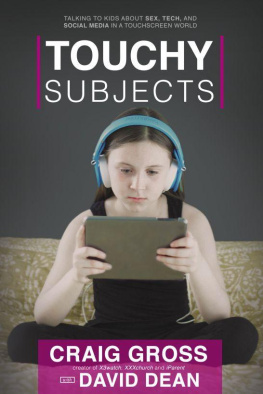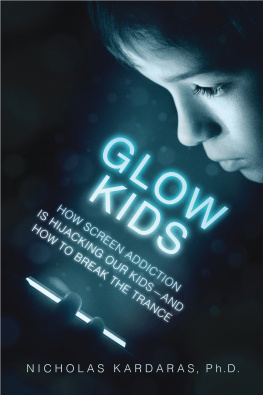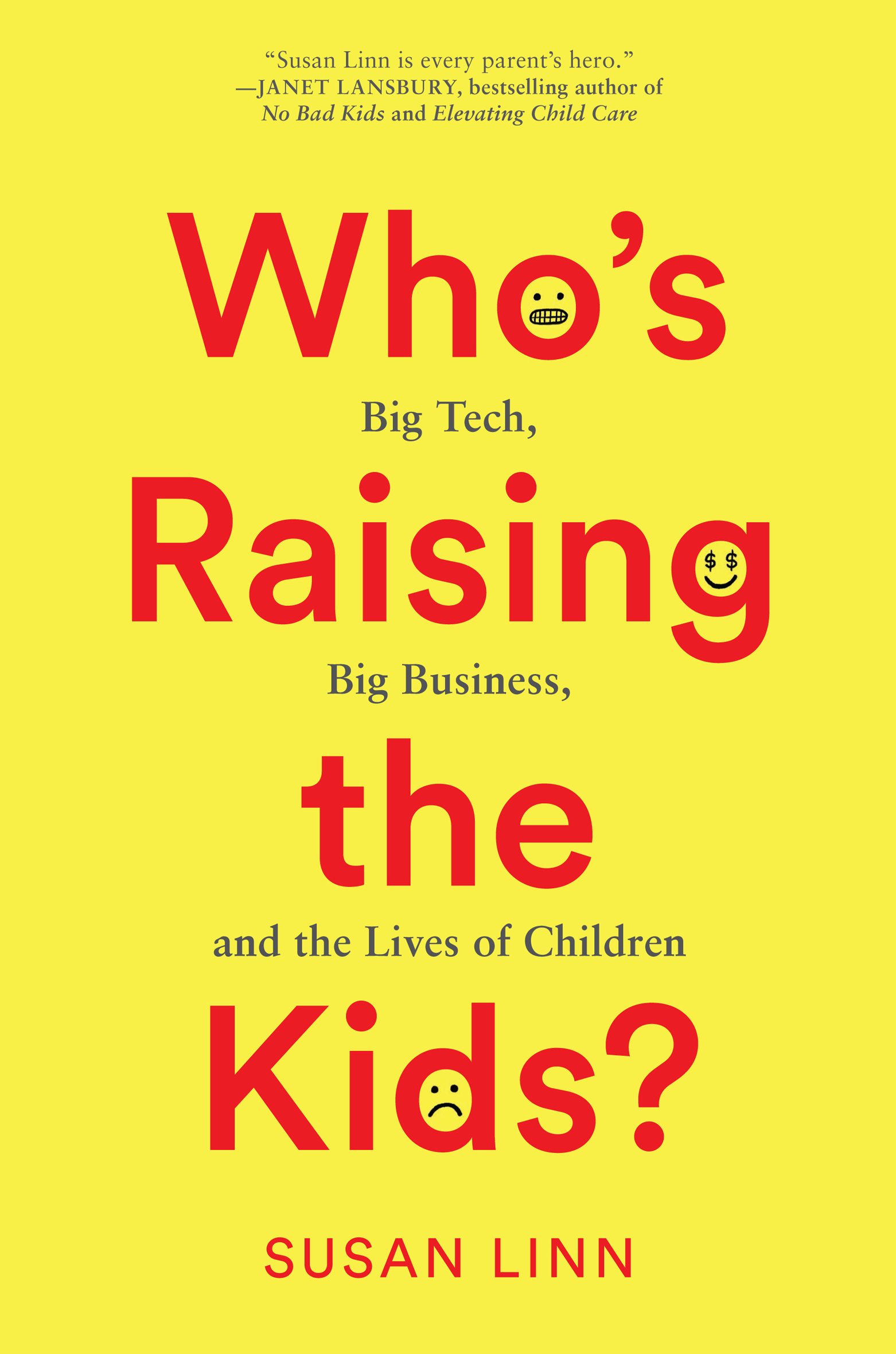Contents
Guide
Pagebreaks of the Print Version
Also by Susan Linn
Consuming Kids: The Hostile Takeover of Childhood
The Case for Make Believe:
Saving Play in a Commercialized World
Whos Raising the Kids?
Big Tech, Big Business,and the Lives of Children
Susan Linn

FOR MARLEY AND IZZY, WITH LOVE
This society transforms its children into consumers making them want, want, want, want, in order to sell them and their parents not what the children need but what they have been made to want. What they want, not what they need. It commodifies and monetizes its children. It objectifies them. It dehumanizes them.
RUSSELL BANKS
Contents
A Note to the Reader
The facts are irrelevant. It doesnt matter one bit whether something is actually better or faster or more efficient. What matters is what the consumer believes.
SETH GODIN, All Marketers Are Liars
I was working away at this book in March 2020 as the COVID-19 virus spread, beginning to take its terrible toll around the world. Sheltering in place began. Confined to my house, I thought I would devote my unexpected, extended solitude to immersing myself in writing. Instead, I found myself distracted by the destruction at handmounting deaths, rampant unemployment, and beleaguered and inadequately provisioned health care workers. So rather than writing, I spent the first months of the pandemic engaging with young children in live video chats with my puppet, Audrey Duckfiguring I could at least provide a respite for kids abruptly deprived of their peers and for stressed parents working from home or suddenly unemployed.
The increasing evidence that Black and Brown people were disproportionately dying from COVID, the horror of George Floyds tortuous murder under the knee of a white policeman, and the wave of protests that followed only pulled me further away from writing. My concerns about immersing children in our hypercommercialized culture seemed so beside the point.
But I was wrong. While out-of-control commercialism is not the root cause of the aforementioned problems, I came to realize that our marketing-saturated culture exacerbates these and other social ills. The mores and behaviors promoted by corporate marketing are no longer confined to commerce. They profoundly, and negatively, influence crucial realms of civil society, including government, family and community life, and schools and learning, as well as our relationship with ourselves, with others, and with nature.
In 2016 we elected a president previously known solely and simultaneously as a brand and its chief marketer. At the time, I thought this was the pinnacle of a market-driven society. But while Donald Trump may be the embodiment of a hyper-commercialized culture, hes also the result rather than the cause. A scary number of Americans still buy the lie that he won a bid for re-election that he empirically lost. And speaking of lies, we lost our best chance to thwart the coronavirus because pundits and politiciansaided by Facebook and by other profit-hungry tech and media conglomeratessold millions of people on blatant fabrications that denigrated real life-saving protections like vaccines and face masks.
Advertising targets emotions, not intellect, and is designed to forestall critical thinking. Iconic slogans like Nikes Just Do It, Sprites Obey Your Thirst, and Pepsis Live for Now glorify impulsivity. When I was in Korea several years ago, the slogan for Coke was Stop Thinking.
I began to understand the United States colossal and tragic failure to contain the coronavirus in its early days, potentially saving hundreds of thousands of lives, as a macabre affirmation of the power of marketing. The Trump administrations handling of the virus certainly seemed to embrace the essence of Seth Godins marketing maxim: facts are irrelevant. (The virus is a hoax.) What really matters is what people believe. The best way to sell something is to convince potential buyers that youre giving them what they need. People desperately wanted to believe that the government had the virus under control or that it would go away on its ownor better yet, that it didnt really exist.
Harms to children are collateral damage of the marketing techniques employed to spread disinformation about the coronavirus. While kids werent the intended audience, they certainly suffered. At a minimum, childrens lives were upended, their schooling interrupted, and their parents stressed. For many kids, the consequences were even more devastatingthey lost parents and caregivers and descended into poverty. Some got sick themselves. Some even died.
I also began to understand that while the links between our tech-dominated, commercialized culture and systemic racism may not be obvious, theyre real, they matter, and they affect children.
The racism sustained by commercialized algorithms harms not only those children who use social media and search engines but also millions of kids who dont. The stereotypes and misinformation that are a byproduct of algorithms that prioritize profit over justice profoundly affect how Black and Brown children are viewed and treated by society. In turn, how the larger society views various races and ethnicities affects how all kids view themselves and each other.
As I began to sort out the connections between excessive commercialism and the horrendous consequences of both a mismanaged public health crisis and systemic racism, my excitement about writing returned. Once again, it became clear to me that the problem with the tech-driven, omnipresent marketing that kids experience today isnt just that theyre being sold stuff. Its that the values, conventions, and behaviors embraced and engendered by gargantuan, minimally regulated, for-profit conglomerates permeate all aspects of society, including the lives of children.
Instead of being beside the point, Ive come to see that understanding and mitigating the impact of commercial culture on children, in particular the impact on their values, relationships, and learning, is vital to successfully moving through not only the crises I describe above but others we face now and in the future. What follows is my contribution to making that happen.
Facebook changed its name to Meta in 2021. From now on I use Meta to refer to the company and Facebook to refer to the social network.
Introduction
Almost the entire childrens media ecosystemnot all of it, but almost all of itexists as a venue for advertising. Advertising and marketing are the foundation on which the whole media structure is built.
VICKY RIDEOUT, founder of VJR, specializing in research on children, media, and technology
I am giving a talk about kids, tech, and commercialized culture to parents, teachers, and administrators when I notice something strange. The people my age in the audience, whose kids are grown, are looking rather smug. In contrast, the younger generation of adults, those currently in the throes of raising families, are looking distinctly uncomfortable. So, I interrupt myself.
Im not here to make anybody feel guilty, I say. In some ways, its never been harder to be a parent, even for families with adequate resources. Youre dealing with a culture dominated by multinational corporations spending billions of dollars and using seductive technologies to bypass parents and target children directly with messages designedsometimes ingeniouslyto capture their hearts and minds. And their primary purpose is not to help kids lead healthy lives or to promote positive values or even to make their lives better. Its to generate profit. So, if people my age tell you to just say no or talk about how they used to just turn off the TV, be politebut remember that they have no idea what raising children in a digitized, commercialized world is like. And I resolve to begin my talks this way from now on.


